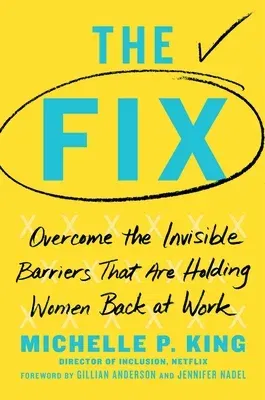In the vein of #Girlboss and Nice Girls Don't Get the Corner
Office, discover how to thrive at work from the head of the Global
Innovation Coalition for Change at UN Women with this "passionate,
practical roadmap for addressing inequality and finally making our
workplaces work for women" (Arianna Huffington).
For years, we've been telling women that in order to succeed at work,
they have to change themselves first--lean in, negotiate like a man,
don't act too nice or you'll never get the corner office. But after
sixteen years working with major Fortune 500 companies as a gender
equality expert, Michelle King has realized one simple truth--the tired
advice of fixing women doesn't fix anything.
The truth is that workplaces are gendered; they were designed by men for
men. Because of this, most organizations unconsciously carry the idea of
an "ideal worker," typically a straight, white man who doesn't have to
juggle work and family commitments. Based on King's research and
exclusive interviews with major companies and thought leaders, The Fix
reveals why denying the fact that women are held back just because they
are women--what she calls gender denial--is the biggest obstacle
holding women back at work and outlines the hidden sexism and invisible
barriers women encounter at work every day. Women who speak up are seen
as pushy. Women who ask for a raise are seen as difficult. Women who
spend hours networking don't get the same career benefits as men do.
Because women don't look like the ideal worker and can't behave like the
ideal worker, they are passed over for promotions, paid less, and pushed
out of the workforce, not because they aren't good enough, but because
they aren't men.
In this fascinating and empowering book, King outlines the invisible
barriers that hold women back at all stages of their careers, and
provides readers with a clear set of takeaways to thrive despite the
sexist workplace, as they fight for change from within. Gender equality
is not about women, and it is not about men--it is about making
workplaces work for everyone. Together, we can fix work, not women.

